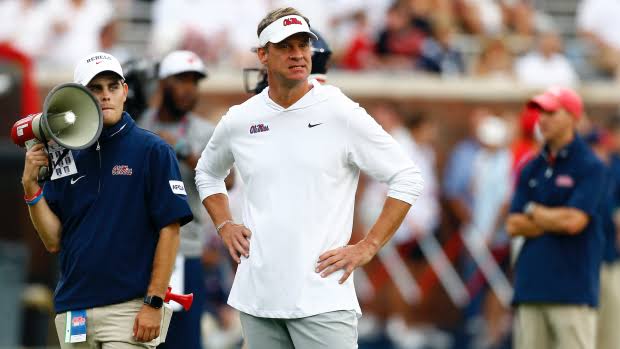Lane Kiffin, the head coach of the Ole Miss Rebels, is no stranger to making headlines. Recently, he stirred up controversy by calling out Wake Forest for breaking what he referred to as an “unwritten rule” of college football. Kiffin’s comments came after Wake Forest was accused of tampering with players from other programs, sparking a larger discussion about player recruitment and the ethics of the transfer portal in the current college football landscape.
The specific incident that led to Kiffin’s remarks involved Wake Forest allegedly contacting players from other teams before they had entered the transfer portal. According to Kiffin, this violates the unspoken agreement among coaches not to engage with athletes until they officially declare their intention to transfer. “There’s an unwritten rule in this sport,” Kiffin said during a recent press conference. “You don’t go after players from another team until they’re in the portal. Everyone knows that, and for Wake Forest to do this, it crosses a line.”
Kiffin’s comments shine a light on the growing concern about tampering in college football. With the NCAA transfer portal giving players more freedom than ever before to move between schools, the lines between recruitment and poaching have blurred. Many coaches, like Kiffin, believe that some programs are taking advantage of the system, contacting players before they are eligible, and disrupting team dynamics.
The implications of such actions go beyond just breaking the “unwritten rule” of waiting for players to enter the portal. It can also lead to unrest within teams, as players may feel tempted to leave even if they haven’t officially announced their decision to transfer. This can cause a ripple effect, leading to instability in rosters and complicating coaches’ efforts to build cohesive teams. For a coach like Kiffin, who has embraced the transfer portal as a tool to improve his roster, this type of behavior undermines the integrity of the system.
Kiffin also emphasized that the issue isn’t limited to Wake Forest, noting that tampering has become more prevalent across the college football landscape. He warned that if these kinds of practices continue unchecked, it could lead to a “wild west” scenario where coaches are constantly battling to retain their players, even during the season.
Wake Forest, for its part, has denied any wrongdoing, stating that they follow all NCAA rules regarding player contact and recruitment. However, the controversy has sparked a broader conversation about whether the current transfer portal rules are sufficient to prevent tampering, and if stronger regulations are needed to ensure fair play.
Kiffin’s willingness to call out another program publicly shows just how serious the issue of tampering has become in college football. His comments may also serve as a warning to other programs that are considering bending the rules when it comes to player recruitment.
As college football continues to evolve with the transfer portal, NIL deals, and other changes, the boundaries of fair play will likely continue to be tested. Kiffin’s callout of Wake Forest is just the latest chapter in a growing debate over what’s acceptable in the modern era of college sports, and whether more explicit rules are needed to keep the game fair for all.
